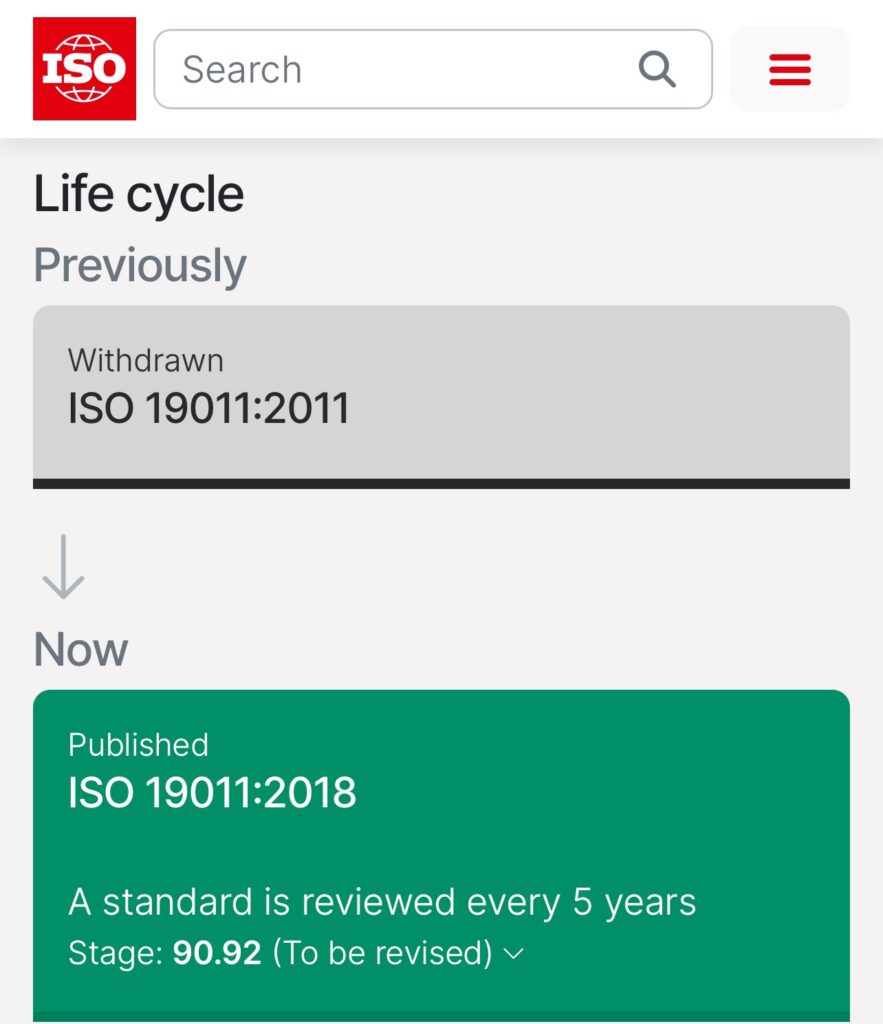
To date I never came across this until a few days ago while reading another international standard. I figured that it would be useful to share with you.
ISO 19011 is a standard that provides guidelines for auditing management systems. Here are ten detailed points summarizing ISO 19011:
- Scope and Field of Application:
ISO 19011 covers the principles and practices of auditing management systems, emphasizing the importance of effective auditing to ensure the continual improvement of these systems. - Auditing Principles:
The standard outlines key auditing principles, such as integrity, fair presentation, confidentiality, independence, and evidence-based approach, which auditors should adhere to during the auditing process. - Managing an Audit Program:
ISO 19011 provides guidance on establishing and managing audit programs, including the need for a systematic approach, defining audit objectives, and ensuring resources and responsibilities are clearly defined. - Audit Activities:
The standard details various audit activities, including the initiation of an audit, preparation, conducting the audit, documenting findings, and reporting results. It stresses the importance of communication throughout these stages. - Competence and Evaluation of Auditors:
ISO 19011 emphasizes the competence and evaluation of auditors, including their knowledge, skills, and personal attributes. It outlines criteria for selecting auditors and encourages ongoing training and development. - Audit Process:
The standard describes the audit process, including the need for a systematic approach, understanding the auditee’s organization and context, and assessing risks to determine the audit scope and criteria. - Initiating and Preparing for an Audit:
ISO 19011 provides guidance on initiating and preparing for an audit, covering activities such as defining audit objectives, scope, and criteria, as well as establishing communication channels with auditees. - Conducting the Audit:
The standard details the activities involved in conducting an audit, from opening meetings and gathering evidence to documenting findings and ensuring impartiality throughout the process. - Audit Reporting:
ISO 19011 outlines the requirements for documenting and reporting audit findings. It stresses the importance of clear, concise, and accurate reporting to facilitate understanding and corrective action. - Follow-up Activities:
The standard emphasizes the need for follow-up activities, including verifying the effectiveness of corrective actions taken by the auditee and assessing the overall performance of the management system.
As a Quality Engineer in my current role, the more experienced the auditor the better the management system will be because they find the weak and blind spots to make it better no matter how well prepared an organisation may be.
Let’s get back to our Wednesday, we’re among the lucky few to work on the 52nd week of the year 2023.
Cheers 🥂 MFR